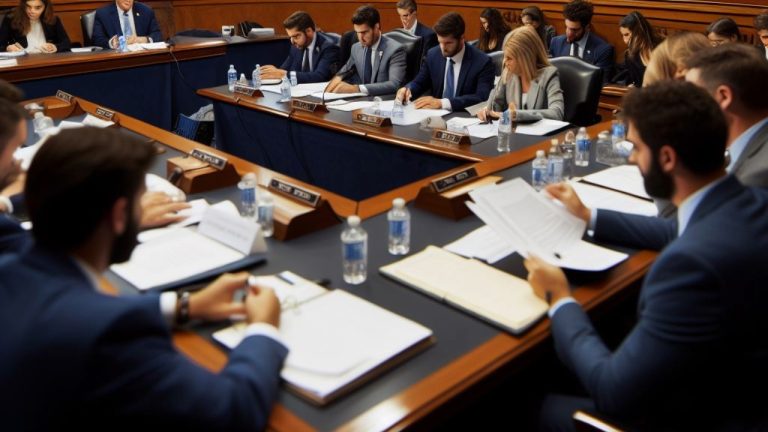 Russia has integrated the use of digital assets as payment for international transactions in its legislation. President Vladimir Putin signed into law a document that describes using these assets as payment for international settlements, a use case not contemplated in any law, appointing the Central Bank of Russia as the overseer of these transactions. Russia […]
Russia has integrated the use of digital assets as payment for international transactions in its legislation. President Vladimir Putin signed into law a document that describes using these assets as payment for international settlements, a use case not contemplated in any law, appointing the Central Bank of Russia as the overseer of these transactions. Russia […] The National Tax Service in South Korea is preparing to launch a virtual asset tax system to help analyze the information received from cryptocurrency holders to avoid cryptocurrency tax evasion. Local sources reported that the agency had contracted the services of a third-party company to help in this task, and it is scheduled to be […]
The National Tax Service in South Korea is preparing to launch a virtual asset tax system to help analyze the information received from cryptocurrency holders to avoid cryptocurrency tax evasion. Local sources reported that the agency had contracted the services of a third-party company to help in this task, and it is scheduled to be […] Montana introduced an amicus curiae in the case of the SEC vs. Kraken, a US-based crypto exchange, criticizing the “regulatory power grab” of the institution. Montana, supported by seven other states, affirms that crypto assets are not automatically securities and that the SEC’s expansive concept of “investment contract” might preempt state legislation. Montana and Seven […]
Montana introduced an amicus curiae in the case of the SEC vs. Kraken, a US-based crypto exchange, criticizing the “regulatory power grab” of the institution. Montana, supported by seven other states, affirms that crypto assets are not automatically securities and that the SEC’s expansive concept of “investment contract” might preempt state legislation. Montana and Seven […] The House Financial Services Committee of the U.S. Congress has advanced a resolution that seeks to disavow SEC SAB 121, a bulletin that leaves banks and financial institutions out of the cryptocurrency custody provider market. However, the resolution, advanced with bipartisan support, is unlikely to be passed at a vote on the House floor, according […]
The House Financial Services Committee of the U.S. Congress has advanced a resolution that seeks to disavow SEC SAB 121, a bulletin that leaves banks and financial institutions out of the cryptocurrency custody provider market. However, the resolution, advanced with bipartisan support, is unlikely to be passed at a vote on the House floor, according […] Kraken, a U.S.-based cryptocurrency exchange, has started requiring additional information in the U.K. regarding transactions of self-custody wallets made to and from its accounts. Kraken sent an email to some of its U.K. customers, stating that if the information required was not provided, it could result in an account lock until the required data is […]
Kraken, a U.S.-based cryptocurrency exchange, has started requiring additional information in the U.K. regarding transactions of self-custody wallets made to and from its accounts. Kraken sent an email to some of its U.K. customers, stating that if the information required was not provided, it could result in an account lock until the required data is […]

The pro-crypto bill is one of many before Congress that aims to promote the country’s deployment and use of blockchain technology.
A United States House Committee has unanimously passed a pro-blockchain bill, which would task the U.S. commerce secretary to promote blockchain deployment and thus potentially increase the country's use of blockchain technology.
On Dec. 5, the House Committee on Energy and Commerce voted 46-0 to pass H.R. 6572, the Deploying American Blockchains Act of 2023, in a session aiming to clear 44 pieces of legislation.
The 13-page blockchain bill would direct Secretary of Commerce Gina Raimondo to “take actions necessary and appropriate to promote the competitiveness of the United States related to the deployment, use, application, and competitiveness of blockchain technology or other distributed ledger technology.”

The crypto exchange’s focus on non-U.S. markets is part of a next phase in its expansion plans, said the firm.
Coinbase has flagged several countries outside the United States where it intends to focus its operations in the near term, citing their comparatively clearer crypto laws.
In a Sep. 6 blog post, Coinbase’s international business VP, Nana Murugesan and international policy VP, Tom Duff Gordon, marked the European Union, United Kingdom, Canada, Brazil, Singapore and Australia as “near-term priority markets.”
The pair said the countries are “enacting clear rules” and Coinbase would focus on “acquiring licenses, registering, and establishing and strengthening operations” in them.
Globally, countries are vying to become crypto hubs. Regulatory clarity has emerged in the EU, UAE, China (HK), Singapore, Australia and Canada, to name a few.
— Coinbase ️ (@coinbase) September 7, 2023
“Every part of the world is seeing progress on crypto-forward regulation — except for the U.S., which is opting for a ‘strategy’ of enforcement of existing rules and new regulations through the courts,” the pair wrote.
They added the country is “sidelining itself” on crypto regulations which puts at risk its influence over the space.
“We’re committed to helping to update the global financial system and providing more economic freedom and opportunity, and won’t stand idle just because the U.S. is,” they wrote.
The crypto exchange faces regulatory action in its native U.S. — with a lawsuit from the Securities and Exchange Commission accusing it of selling unregistered securities and operating illegally.
Coinbase’s new priority markets are part of the second phase of its expansion plans — which it dubbed “Go Broad, Go Deep.”
It outlined its plans to establish partnerships with global and local banks and payment providers to expand its fiat ramps along with assuring its governance systems are compliant.
Related: Aave, Circle, Base become founding members of Tokenized Asset Coalition
Its lobbying and visibility efforts will also intensify ahead of the EU elections next June.
It flagged plans to engage with the G20 aiming to create global crypto standards and will keep a “scorecard” on each country's crypto regulatory progress.
Coinbase is seemingly focusing its G20 lobbying efforts on Brazil — set to take the G20 chair in 2024.
In March, Coinbase expanded its offering in Brazil and according to the blog post co-founder and CEO Brian Armstrong will visit the country later this year “to engage with key decision-makers and stakeholders.”
Magazine: Asia Express: Thailand’s national airdrop, Delio users screwed, Vietnam top crypto country

Ripple Labs chair Chris Larsen commented on the recent cases involving Ripple, Grayscale, and the SEC, arguing it is time for Congress to take the lead on crypto policy.
The United States’ legal system is set to bring the crypto industry “back in the game” after the Biden administration “screwed up” its crypto policy, says Ripple Labs chair and co-founder Chris Larsen.
Speaking to Bloomberg on Sep. 7 about his firm’s July partial win against the Securities and Exchange Commission, Larsen argued the regulator lost on “everything that was important to [it] and important in the regulation of the industry.”
“The U.S. screwed up here on crypto and blockchain policy. This is the beginning now through the courts, unfortunately instead of through regulators, to get that clarity and get us back in the game.”
Larsen also commented on the latest court judgment in favor of Grayscale over its application to convert its Bitcoin (BTC) trust into a spot Bitcoin ETF, noting it “really admonished the SEC [...] in a way that you don't really see very often.”
I sincerely hope we’re seeing the beginning of the end of the SEC’s policy of regulation by enforcement. The Courts are rejecting it, and now it’s time for Congress to take the lead on crypto policy.
— Chris Larsen (@chrislarsensf) September 6, 2023
Thanks @EdLudlow @technology for the chat! https://t.co/3gZOR4lq5J
Larsen argued the ruling was proof that SEC chair Gary Gensler knows crypto laws aren’t clear and simply likes the lack of clarity so “he can go after anybody and make up the rules as he goes along through bullying.”
“That's not the American way. We should have clear rules from the legislatures, not through these unelected, power-hungry and really misplaced decision-makers that you see in Gary Gensler.”
Gensler has however previously claimed that the crypto market is full of “fraudsters” and “Ponzi schemes” and that the SEC’s securities laws would help to clean it up.
In another part of the interview, Larsen claimed Biden’s crypto policies “pretty much killed” San Francisco from being the “blockchain capital of the world” despite Silicon Valley’s tech hub reputation.
Related: Grayscale asks SEC to meet on ‘way forward’ for Bitcoin ETF conversion
“We owned it and we don't anymore because the Biden administration, for whatever reason, decided they wanted to push this industry offshore,” Larsen added.
“That was a missed opportunity. It's really unfortunate. Hurt the city.”
He pointed to London, Singapore and Dubai as global blockchain capitals for their “clear rules that protect consumers and also celebrate innovation.”
“Why isn't America leading that call?” Larsen asked. “That's what we've always been, and we've got to get back to it.”
Magazine: Opinion: GOP crypto maxis almost as bad as Dems’ ‘anti-crypto army’

Two crypto regulatory bills have been passed by the United States House Financial Services Committee, which could finally provide some much-needed regulatory clarity.
A key United States House panel has approved a pair of bills that could finally deliver some regulatory clarity to crypto firms — including clarifying the differences in jurisdiction between the US securities and commodities regulators.
On July 26, the majority of U.S. lawmakers voted in favor of the Financial Innovation and Technology for the 21st Century Act as well as the Blockchain Regulatory Certainty Act.
The House Financial Services Committee approved the Financial Innovation and Technology for the 21st Century Act in a 35-15 vote which would establish rules for crypto firms on when to register with either the Commodity Futures Trading Commission (CFTC) or the Securities and Exchange Commission (SEC).
#PASSED: In a historic first, the House Financial Services Committee just advanced the BIPARTISAN FIT for the 21st Century Act to protect consumers and provide clear rules of the road for the digital asset ecosystem.
— Financial Services GOP (@FinancialCmte) July 26, 2023
Up next: @HouseAgGOP considers the legislation tomorrow. pic.twitter.com/kOyLmolPuz
The Republican bill also outlines a process for firms to certify with the SEC that their projects are adequately decentralized which would allow them to register digital assets as a digital commodity with the CFTC.
Republican Congressman, French Hill, who also serves as the Vice-Chairman of the House Financial Services Committee said he was proud the bill had passed its first hurdle, and that it had been passed by the committee with bipartisan support.
"We have crafted landmark legislation that establishes robust consumer protections and clear rules of the road for market participants while keeping innovation in the United States."
Meanwhile, the bipartisan “Blockchain Regulatory Certainty Act” led by Republican Congressman Tom Emmer and Democratic Congressman Darren Soto, aims to set out guidelines that remove hurdles and requirements for “blockchain developers and service providers” such as miners, multi-signature service providers and decentralized finance (DeFi) platforms.
Republican Representative Tom Emmer praised the passing of the Blockchain Regulatory Certainty Act as a "huge win" for the United States.
BREAKING: My nonpartisan bill – the Blockchain Regulatory Certainty Act – just passed out of the @FinancialCmte.
— Tom Emmer (@GOPMajorityWhip) July 26, 2023
This is a huge win for the United States as we are one step closer to putting Americans in the driver’s seat in crafting the future peer-to-peer digital economy. pic.twitter.com/JEOuflDMax
Emmer explained that the Blockchain Regulatory Certainty Act "specifically deals with what blockchain-related entities qualify as money transmitters" in the United States. If passed in the House of Representatives, the bill "will clear things up by affirming to the blockchain community that if you don’t custody customer funds, you are not a money transmitter," Emmer added.
Related: US crypto's future could fall on these 4 digital asset bills
Despite the passing of these acts, a number of Republicans and Democrats refused to support another proposed piece of legislation, dubbed The Digital Assets Market Structure bill.
Democratic Representative Maxine Waters condemned the bill for too closely heeding the calls of the crypto industry and ignoring regulatory guidance from the SEC.
"As I have said before, we don’t need to invent new regulatory structures simply because crypto companies refuse to follow rules of the road. Our securities laws have protected investors and retirees for 90 years while supporting capital formation and facilitating innovation," said Rep. Waters.
Opinion: GOP crypto maxis almost as bad as Dems’ ‘anti-crypto army’
Additional reporting by Jesse Coghlan.

SEC commissioner Hester Peirce discussed a possible U.S. crypto legal framework, giving a reminder that not all uses are financial.
Cryptocurrency laws in the United States should be “reserved” and not regulate the technology as though every use is financial, argues a commissioner at the U.S. Securities and Exchange Commission.
On June 29, Commissioner Hester Peirce — dubbed “Crypto Mom” — appeared remotely at Australian Blockchain Week and was asked how she would regulate crypto, answering:
“I think we have to make sure that whatever regulatory framework you have doesn't just assume that everything is a financial asset.”
Peirce explained while crypto is thought of in “very financial terms” other uses exist such as enabling people to interact without requiring a centralized entity.
“That's useful in the financial context, but it's also useful in building a social media platform or whatever else,” she said.
Protecting investors is important, but the government needs to have a good reason to prevent people from investing their own money as they choose: https://t.co/QgPm38iSrp
— Hester Peirce (@HesterPeirce) June 27, 2023
Peirce believes any legal framework should take “a reserved approach” but include “enough clarity that people feel that they can try things.”
“There is something to be said for not putting a framework in place that is so inflexible that it doesn't accommodate the new uses of crypto and blockchain.”
In a seeming swipe at the SEC’s current approach — which many have criticized including Peirce — the commissioner said the laws “can't be reserved then, all of a sudden, [regulators] come in five years later with a bunch of enforcement actions.”
Related: Gary Gensler is hurting the little guys for Wall Street
Asked about her crypto advocacy, Peirce said she thinks the SEC “can do better” and believes if she can't speak freely, “then I don't know why I'm in that position.”
“Crypto presents [the SEC] an opportunity to rethink how we approach innovation [...] I really think we've been taking an approach that is not appropriate,” she said.
Alluding to the collapse of FTX and the allegations of misconduct that followed, Peirce advised the crypto industry to undertake self-regulation and pay attention to counterparty risks, conflicts of interest and leverage.
“Those are things you don't need a government regulator to tell you to do, but I think government regulators can play a role in that.”
Magazine: Bitcoin 2023 in Miami comes to grips with ‘shitcoins on Bitcoin’